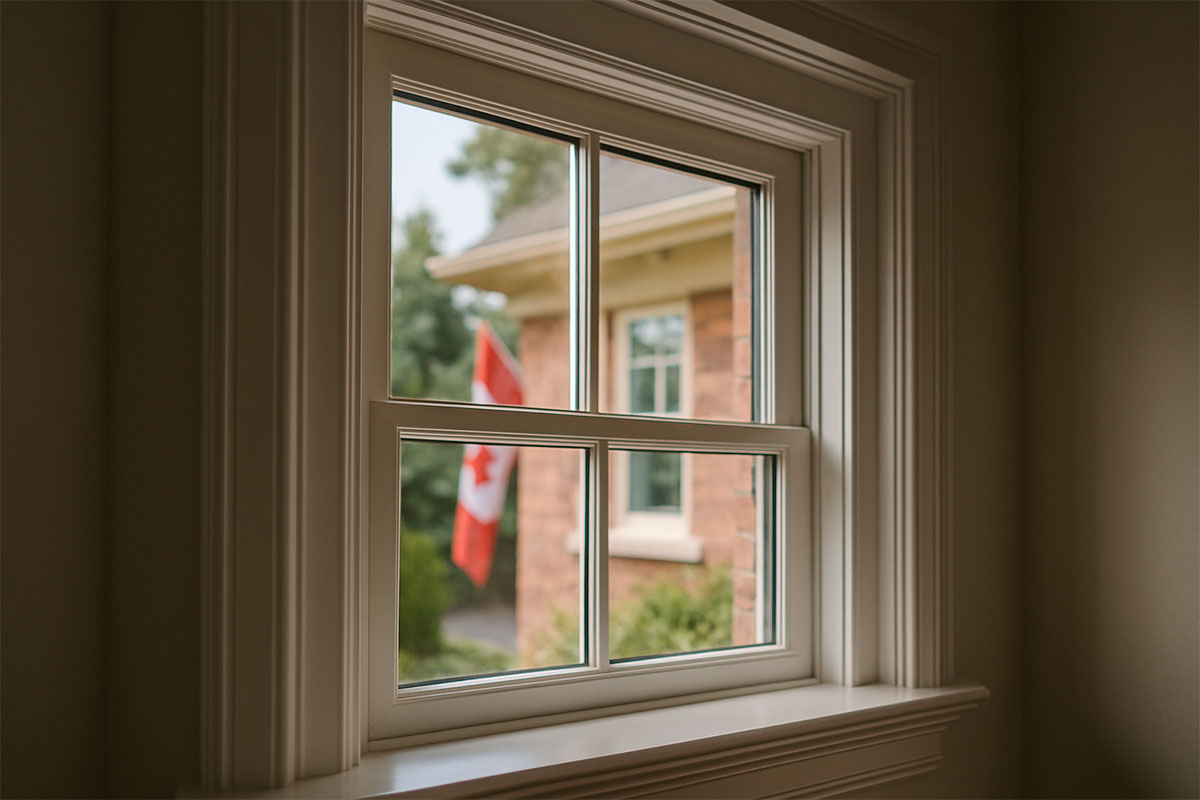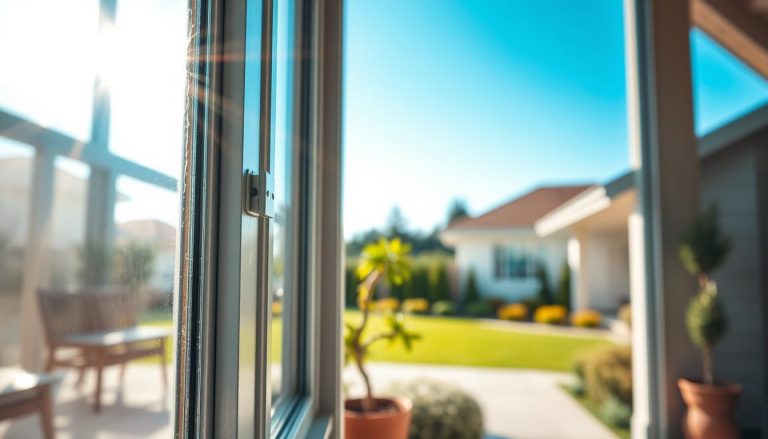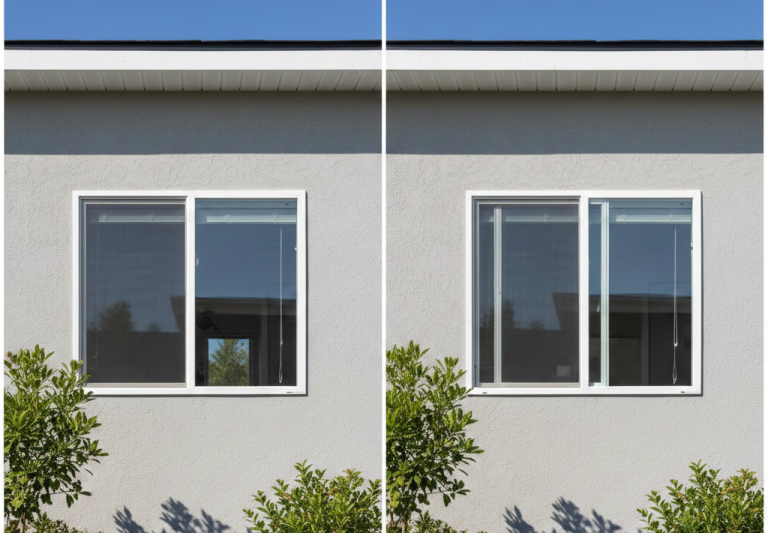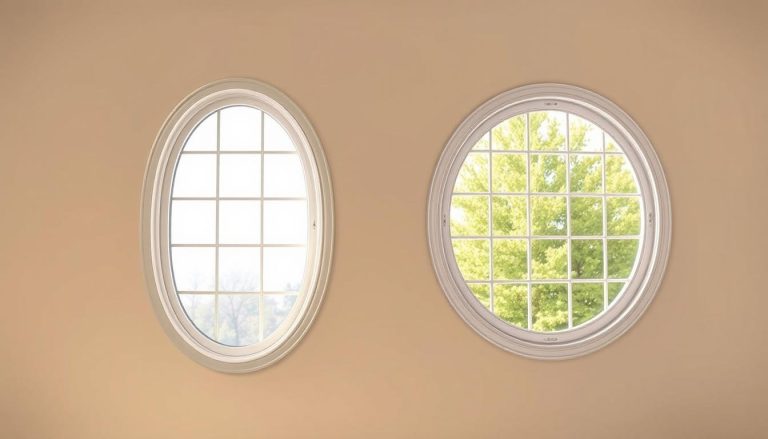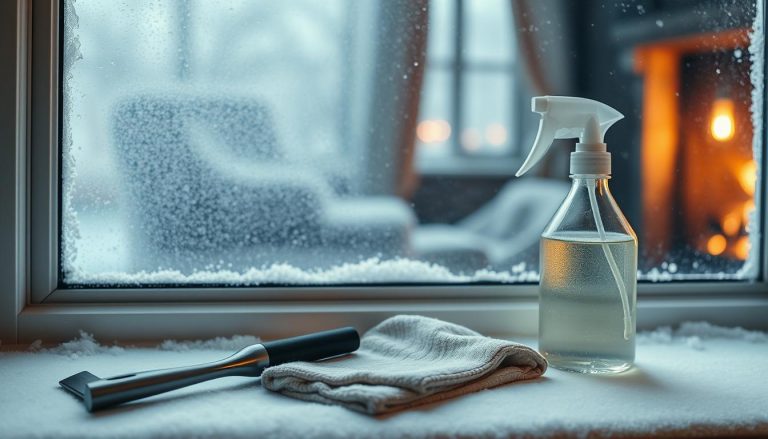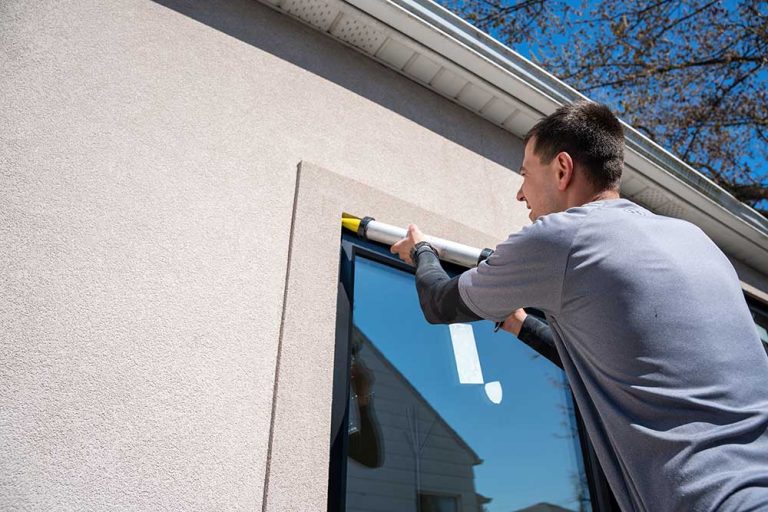Window Replacement Near Me
What is a Window Sash?
The window sash is the moveable part of your window that holds the glass panes in place. Think of it as the frame within the window frame – it’s what actually opens and closes to provide ventilation and access to the outdoors. The sash is part of the window system that directly impacts your home’s energy efficiency, security, and aesthetic appeal.
Many homeowners don’t realize how window sash important components are until they start experiencing problems. The sash creates the tight seal between your indoor and outdoor environments, preventing air leaks that can drive up your energy bills and reduce comfort.
"I always tell my clients that understanding their window sash is like understanding the heart of their window system – it's what makes everything work together," says Cherry Jian, Sales Consultant at Total Home Windows and Doors.
Window Sash Anatomy and Components
Understanding window design starts with recognizing how the sash relates to other window components:
| Component | Function | Impact on Performance |
| Window sash | Holds glass, provides operation | Direct impact on energy efficiency |
| Window frame | Structural support, anchors to wall | Foundation for entire system |
| Jamb | Side supports for sash | Affects smooth operation |
| Sill | Bottom horizontal support | Drainage and weather protection |
| Mullion | Divider between window units | Structural and aesthetic |
The sash itself contains several critical elements:
- Glass panes or insulated glass unit
- Glazing bars (if applicable)
- Weather stripping for sealing
- Hardware for operation and locking
- Glazing compounds or gaskets
For double hung windows, you’ll have both an upper sash and bottom sash that can move independently. Single hung window designs feature a fixed top sash and moveable bottom sash.
Find related services
Types of Window Sashes by Material
Vinyl Windows and PVC Window Frames
Vinyl windows with PVC window frames represent the most popular choice among Canadian homeowners, and for good reason. At Total Home Windows and Doors, we manufacture our own vinyl sashes using advanced uPVC materials that won’t chip, crack, warp, rot, blister, pit, corrode, or peel under normal use and weather conditions.
Vinyl sashes offer:
- Superior energy efficiency
- Low maintenance requirements
- Excellent better insulation properties
- Cost-effectiveness
- Weather resistance
Aluminum Windows
Aluminum windows provide a sleek, modern window style that’s particularly popular in contemporary homes. While they require regular maintenance to prevent oxidation, aluminum sashes offer:
- Lightweight construction
- Narrow profiles for maximum glass area
- unobstructed views
- Durability in harsh weather
Wooden Windows
Traditional wooden windows remain popular for heritage homes and those seeking classic aesthetic appeal. However, wood sashes require regular maintenance including:
- Annual painting or staining
- Regular inspection for rot or insect damage
- Weather seal replacement
- Hardware lubrication
"The choice between materials often comes down to your home's architectural style and your maintenance preferences," explains Alexandr Naumov, Project Manager at Total Home Windows and Doors.
Find related products
Window Sash by Window Style
Different window styles feature window sashes specific to their operation.
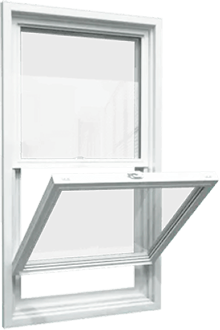
Single Hung Windows
Single hung designs feature a fixed top sash and operable bottom sash. While offering limited ventilation compared to double hung, they provide:
- Lower cost than double hung
- Simpler mechanism with fewer moving parts
- Reduced maintenance requirements
- Good energy efficiency
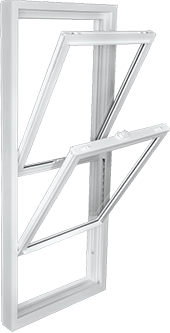
Double Hung Windows
Double hung windows feature two sashes – both the upper sash and bottom sash can move vertically. This design offers:
- Better ventilation control
- Easy cleaning (both sashes tilt inward)
- Traditional appearance
- Natural light optimization
The moveable sashes are supported by balance systems that replace the traditional sash weight and sash cord mechanisms found in older windows.
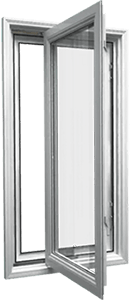
Casement Windows
Casement windows open outward on hinges, providing excellent ventilation and unobstructed views. The sash in casement windows:
- Opens completely for maximum airflow
- Provides superior weather sealing when closed
- Offers easy operation with crank mechanisms
- Ideal for hard-to-reach locations
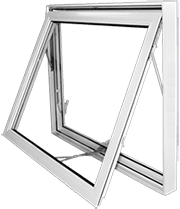
Awning Windows
Awning windows open outward from the bottom, creating an awning effect. The sash design:
- Allows ventilation even during light rain
- Provides excellent weather protection
- Works well in basements and bathrooms
- Offers energy efficient operation
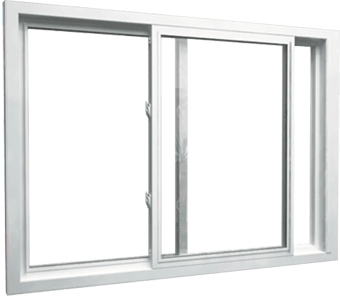
Sliding Windows
Sliding windows feature sashes that move horizontally along tracks. This style works well for:
- Areas with limited exterior space
- Modern window designs
- Ground-floor applications
- Rooms requiring better ventilation
Window Sash Hardware and Mechanisms
Modern window sash systems incorporate sophisticated hardware designed for smooth operation and long-term reliability. Our Total Seal technology represents a significant advancement in sash hardware, featuring:
- Multi-point locking systems for enhanced security
- Integrated lock points positioned 3 inches from corners
- Superior weather sealing to prevent air leaks
- Reinforced corner construction
The hardware components include:
| Hardware Type | Function | Maintenance Required |
| Balance systems | Support moveable sashes | Annual lubrication |
| Lock mechanisms | Security and sealing | Periodic adjustment |
| Weather stripping | Prevent air leaks | Replacement every 5-7 years |
| Operating hardware | Sash movement | Regular cleaning |
"Our Total Seal system addresses the biggest weakness in traditional window design – the top corners where most air infiltration occurs," notes Daniel Klein, Project Manager at Total Home Windows and Doors.
Common Window Sash Problems
Air Leaks and Energy Loss
Air leaks around the sash are the primary cause of energy loss in older windows. When warm air escapes in winter or hot air enters in summer, your HVAC system works harder, increasing energy bills. Signs of sash-related air leaks include:
- Drafts around closed windows
- Condensation between glass panes
- Frost formation on interior glass
- Uneven temperatures near windows
- Higher than expected energy costs
Sash Operation Problems
Over time, sashes may become difficult to operate due to:
- Sash binding in the frame
- Balance system failure
- Hardware wear
- Paint buildup or debris
- Frame settling or warping
When sashes become stuck, homeowners often force them, which can cause additional damage to the entire window system.
Seal Failure in Insulated Glass Units
Insulated glass unit failure is common in older windows, particularly those with single glazed or early double-pane systems. When seals fail:
- Moisture enters between panes
- Glazing becomes foggy or cloudy
- Insulation properties are compromised
- Energy efficiency decreases significantly
- Functionality is maintained but performance suffers
Hardware Deterioration
Window hardware faces constant stress from daily operation and weather exposure. Common problems include:
- Lock mechanisms that don’t engage properly
- Balance systems that fail to support sash weight
- Hinges that become loose or corroded
- Operating cranks that slip or bind
Professional Installation and Services
At Total Home Windows and Doors, we understand that replace decisions involve significant investment in your home’s comfort and value. Our professional installation services ensure that your new windows perform optimally from day one.
While some homeowners consider DIY window installation, professional installation ensures:
- Proper sash alignment and operation
- Optimal energy efficiency performance
- Warranty protection and support
- Code compliance and safety
- Long-term reliability
Our dedicated service team operates from branded service vans equipped with specialized tools for immediate response to any concerns. Whether you need sash adjustment, hardware replacement, or complete window service, we’re equipped to handle every aspect of your window system maintenance.
For homeowners considering window replacement or sash repair, contact Total Home Windows and Doors for a comprehensive assessment of your needs and expert guidance on the best solutions for your home.
Frequently Asked Questions About Window Sash
What is the difference between a window frame and a sash?
The window frame is the permanent structure attached to your wall, while the sash is the moveable part that holds glass and opens/closes. Sash windows operate within the fixed frame structure for ventilation control.
What does it mean to replace a window sash?
Replacing a window sash means installing new moveable glass-holding components without replacing the whole window frame. This cost-effective option upgrades functionality while maintaining existing frame structure and improving energy efficient windows performance.
What is the difference between a window sash and a window pane?
A window pane is the individual glass sheet, while the sash is the entire moveable frame holding multiple panes. For example, double-hung windows have upper and lower sashes, each containing one or more glass panes.
Can you replace just window sashes?
Yes, you can replace just the sashes if the frame remains structurally sound. This upgrade improves energy efficient windows performance, enhances safety for small children, and costs less than whole window replacement while delivering similar benefits.

